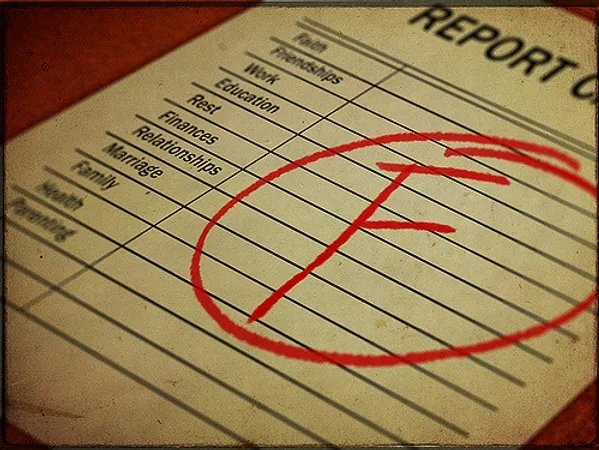Training for Hire (and More)
Do you hire experience or do you hire potential? Do you hire skills or do you hire character?
To those who study history, it's obvious. Potential > Experience. Experience has value, but it's overrated. Lots of people have experience - experience at being mediocre.
Character > Skills. A person of great character can learn a skill. But it's a tough task teaching character to grownups.
Yet, a study of almost any profession will expose the follies of those who made the safe, comfortable decision to hire skills and experience over the riskier, pricklier choice of potential and character.
Stories abound, but my favorite is Eddie DeBartolo Jr's choice of Bill Walsh to be his head coach in 1979. Cincinnati's Paul Brown passed on Walsh in favor of Bill Johnson (who ended up with an 18-15 record and "resigned" after starting 0-5 in his third year). Walsh, had no head coaching experience and his skills were beyond the comprehension of the luddite-like Brown, but he turned out to be a legendary choice. As the leader of the San Francisco 49ers,his teams won 92 games in 10 years, including three Super Bowls. Widely recognized as an offensive innovator and creative genius, Walsh was inducted into the National Football League's Hall-of-Fame.
During this EntreLeaderhip podcast, Ken Coleman talks with DigitalMarketers' Ryan Deiss about the superiority of potential and character over experience and skills. The two expert business consultants make a strong case for hiring managers to be more like DeBartolo and less like Brown. They go so far as to suggest that college-acquired skills and experience are overrated.
Idyllically, you'd hire an applicant with stellar character, unlimited potential, superb technical skills and relevant experience. And, idyllically, the world would be without war, poverty, injustice and bigotry. The reality is choices have to be made, and the bold choice - extraordinary potential and character over pedestrian experience and skills - is more than ever (but probably still not often enough) the choice being made - especially by the kind of freethinkers you'd want as your boss.
So why aren't we spending at least as much time and effort developing off-the-charts character and teaching kids how to be great people?
It's simple. Students, teachers and institutions lose sight of what matters most and why because they are only rewarded when kids become superb knowledge accumulators and test takers. All three - students, teachers and institutions - are evaluated by how well students perform on standardized tests. None of these tests, however, evaluate the person taking it.
Not the latest grade 3-8 exam - the California Assessment of Student Performance and Progress. Not the California High School Exit Examination. Not the Scholastic Aptitude Test. Not any of the the Advanced Placement tests. Not the Graduate Record Exam, Graduate Management Admission Test, Law School Admission Test or even the Medical College Admission Test. You can get a perfect score on every one of these tests, yet still be a jerk because none measure any of the most vitally important human qualities and characteristics.
The "new report card" which I present at the outset of Missing Pieces does. If we begin to measure students not just by their math and science skills or by how much vocabulary they've memorized but, additionally, by qualities such as empathy, leadership, integrity, initiative, manners, motivation, creativity and social skills then maybe - probably - they'll strengthen their character. Or, as the iconic management guru Tom Peters puts it, "What gets measured gets done."
There's very little bad knowledge. For example, everything in the economics textbook from which I teach is worth learning. But if we spend our school time only teaching content (which is all available on-line and much more efficiently delivered there anyway), we won't be improving the humans to whom we're giving the skills and expertise.
And, yes, even the "brightest"- especially the brightest - need to improve their humanity. Here are a pair of recent examples. First, from Harvard's student newspaper, The Harvard Crimson:
Harvard College rescinded admissions offers to at least ten prospective members of the class of 2021 after students traded sexually explicit memes and messages that sometimes targeted minority groups in a private Facebook group chat.
A handful of admitted students formed the messaging group - titled, at one point, "Harvard memes for horny bourgeois teens" - on Facebook in late December, according to two incoming freshmen.
In the group, students sent each other memes and other images mocking sexual assault, the Holocaust, and the deaths of children, according to screenshots of the chat obtained by The Crimson. Some of the messages joked that abusing children was sexually arousing, while others had punchlines directed at specific ethnic and racial groups. One called the hypothetical hanging of a Mexican child "piñata" time."
Yuck.
Props to Harvard for rescinding the admissions, yet that doesn't detract from the fact that these kids were accepted in the first place! How do students like them get into a school like that?
Obviously, because we suck at evaluating morality, because we don't evaluate morality. Or empathy. Or leadership. Or integrity. Or initiative. Or manners. Or motivation. Or creativity. Or social skills. And when you don't do something, when you don't practice something, you're going to be horrible at it. Even Harvard couldn't get it right. (At least initially)A second group of smart people that I wouldn't want to work with, for, or even know are the hackers at the on torrenting site, The Pirate Bay. They had the impressive ability to steal episodes of the then yet-to-be-released season five of the Netflix series, Orange Is the New Black.
The plan was to have Netflix pay them to not show the episodes. There are conflicting reports as to whether or not Netflix paid. (Netflix says it didn't.) But that's not the point. What is is that this is another way-too-common case of talented techies using their skills nefariously. (And I bet if any of them read this they'll shrug their shoulders and wonder, Huh? What's the problem?)
On the other end of the spectrum, there's Fremont, California teenager Tommy O'Connor. Despite his family living on a fixed income, when he found a wallet stuffed with $2,300 in cash, he didn't keep it. His biggest concern? That whoever lost it wouldn't be able to pay his or her rent.
So, why is Tommy like he is and why are the almost-Harvard students and Pirate Bay blackmailers like they are? This is what we need to research, discover and teach. We could start with Tommy O'Connor's mom. According to CBS SFBayArea, she sent him this text message: I’m very proud of you son. Ms. Kalra called me. Wow your [sic] one in a million. Love you to the moon and back.
He replied, You should be thanking yourself. You raised me.
What precisely does that mean? How did she raise her son? What were her techniques? Let's study them. Let's learn them.
I don't know what Tommy's grades are. I don't know what kind of skills he has. But I'd recommend him for hire. I'd want to work with him. I'd want to be around him. Mentors can teach him the skills he needs to learn. But I'm not certain that we can teach the A+ students with mad tech skills who would keep the wallet (the kind of kids who might find a way to get accepted into Harvard) how to become better people.
But we better try. Because this isn't just about making kids hirable. It's about molding them into the kind of people the world needs to save them from themselves - bright, characterless kids who turn into bright, characterless adults.
Next up: Measuring morality





